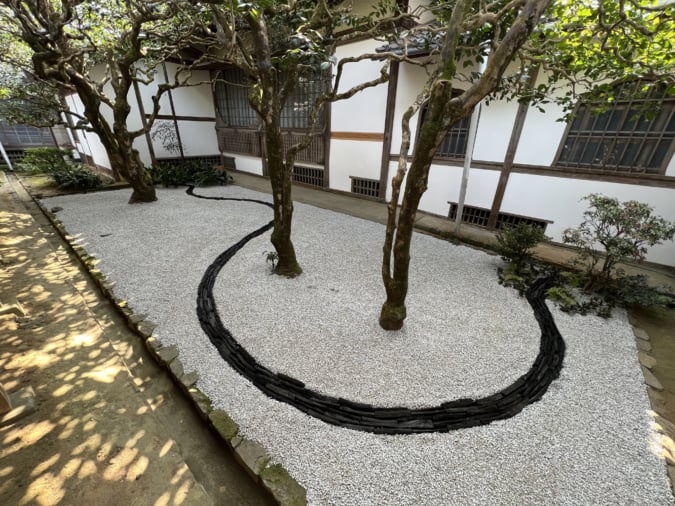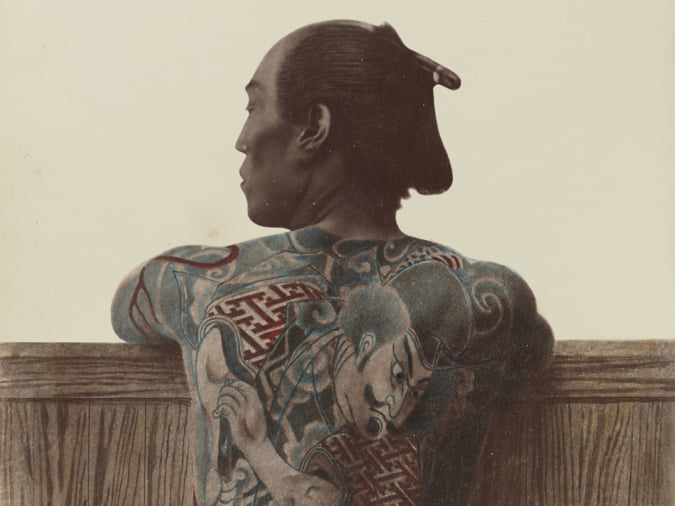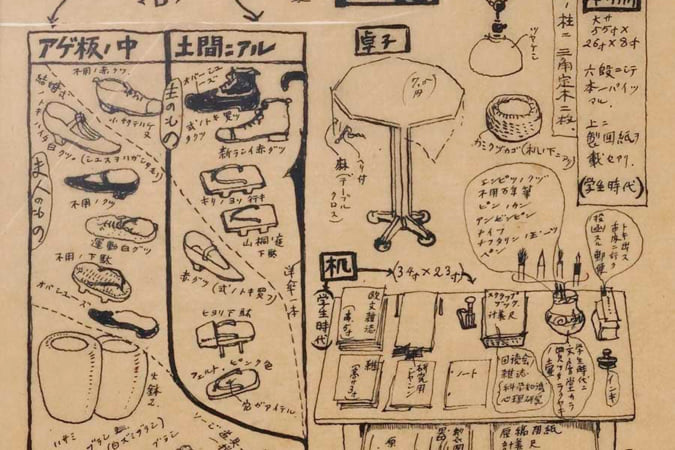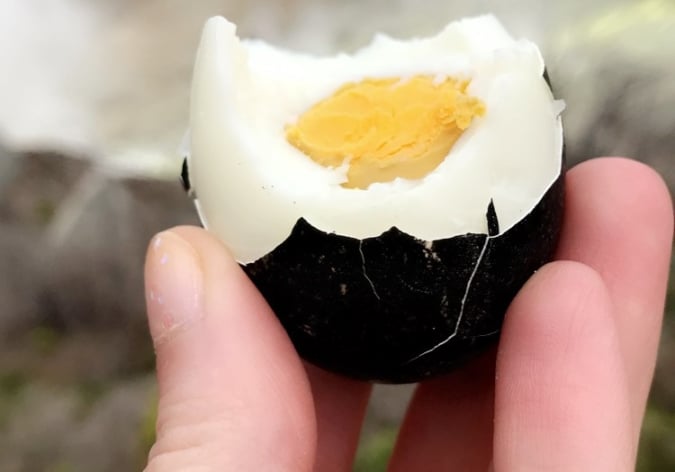Hiroya Kurata Transforms his Memories into Playful Tales
The Japanese painter plays around with and distorts his memories to create colourful pieces that are poetic and cynical in equal measure.
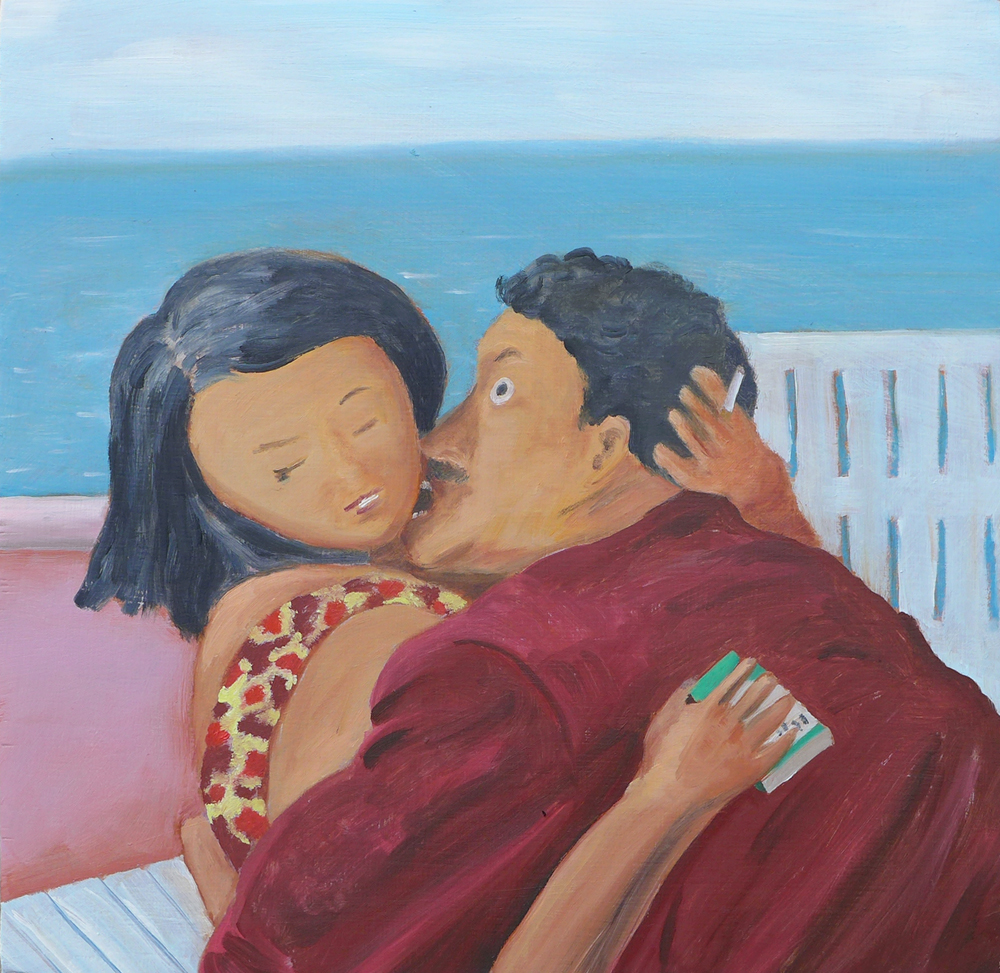
© Hiroya Kurata
A couple kissing passionately, a woman smoking by a window, pensive, two friends immortalising an evening… Hiroya Kurata‘s paintings sublimate the ordinary. Characterised by bright colours and a certain sense of lightness, his creations freeze spontaneous moments like a snapshot.
The Japanese artist, born in 1980, now lives in New York with his wife and children. After having spent several years drawing, he ultimately replaced his pencils with paintbrushes. ‘By chance, the job I have been doing for ten years now involves restoring paintings in a studio. Being in contact with pictorial artwork for such a long time made me more sensitive to the art, and encouraged me to produce my own paintings’, he explains.
Strange and amusing tales
The strength of memory is what guides Hiroya Kurata. It’s an intimate, familiar memory that encourages us to relive warm moments, or special scenes from everyday life. The artist likes to deconstruct these strong images and transform them into fun scenes. ‘I almost always start by making sketches, which I’m then eager to paint. My creations often address the same subjects and themes, but these are not the most important elements: I prefer for the viewer to retain the cynical, humorous aspect of my work’, he states.
What is this woman smoking a cigarette thinking about that makes her look so surprised? Are these embracing lovers really in love? By playing with facial expressions, the colours of the landscapes, and the codes of seduction, the painter invents strange, amusing tales and invites the viewer to do the same. Sometimes, however, Hiroya Kurata’s pieces become sensitive and touching. In When mother was young, the artist’s first solo show, held at the American gallery Over the Influence in October 2020, the notions of family, filial love, and childhood were dominant.
Hiroya Kurata’s work can be found on his website.
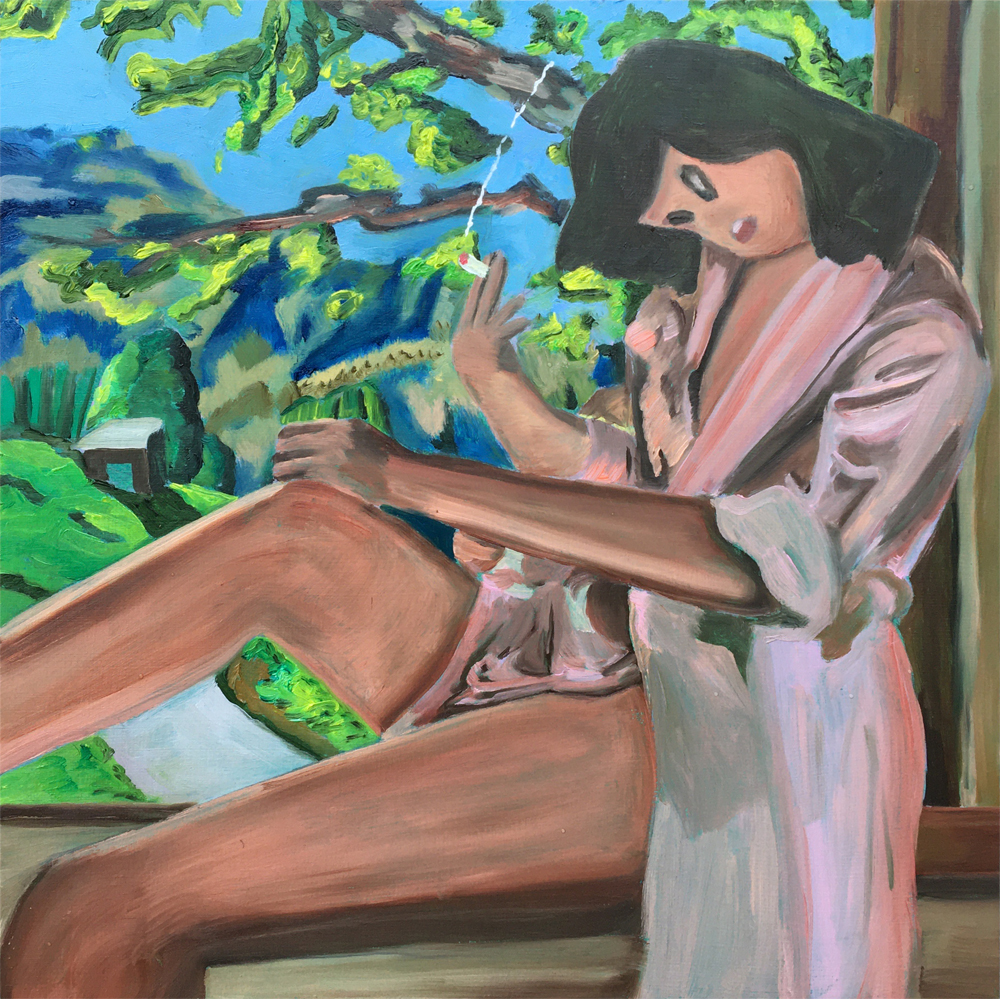
© Hiroya Kurata
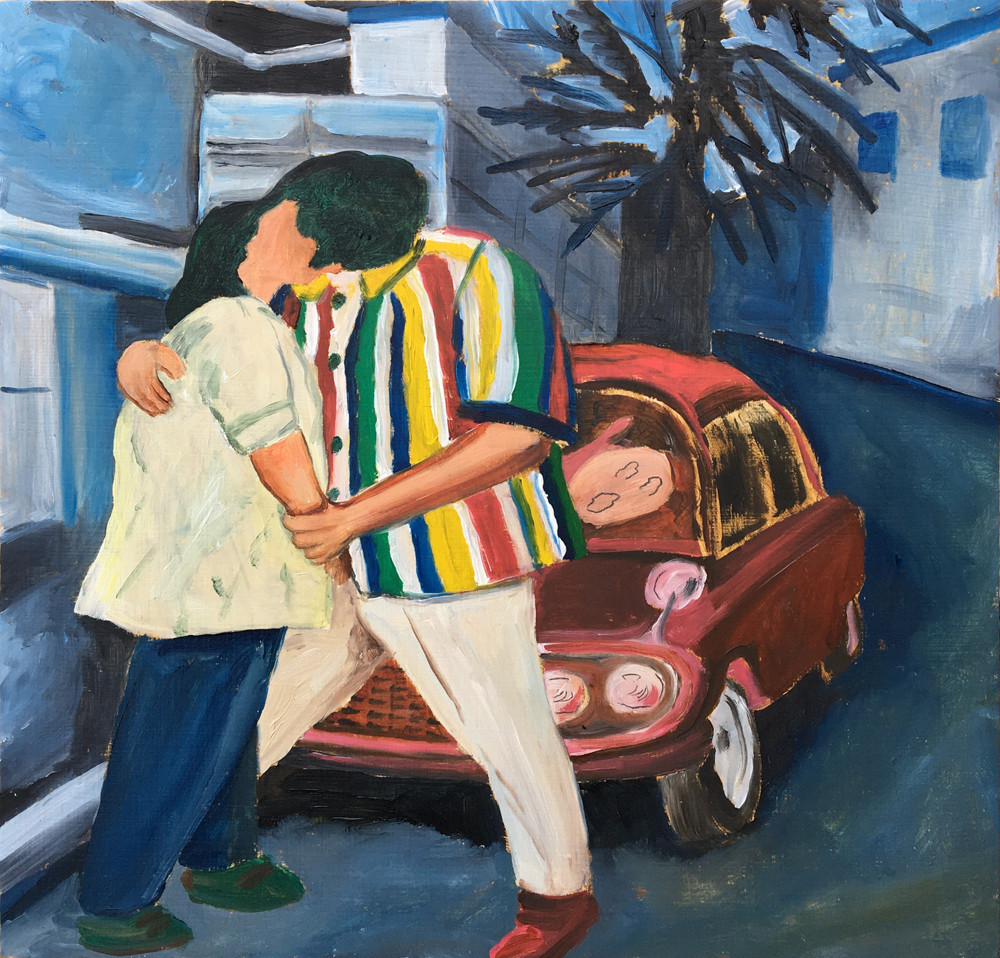
© Hiroya Kurata
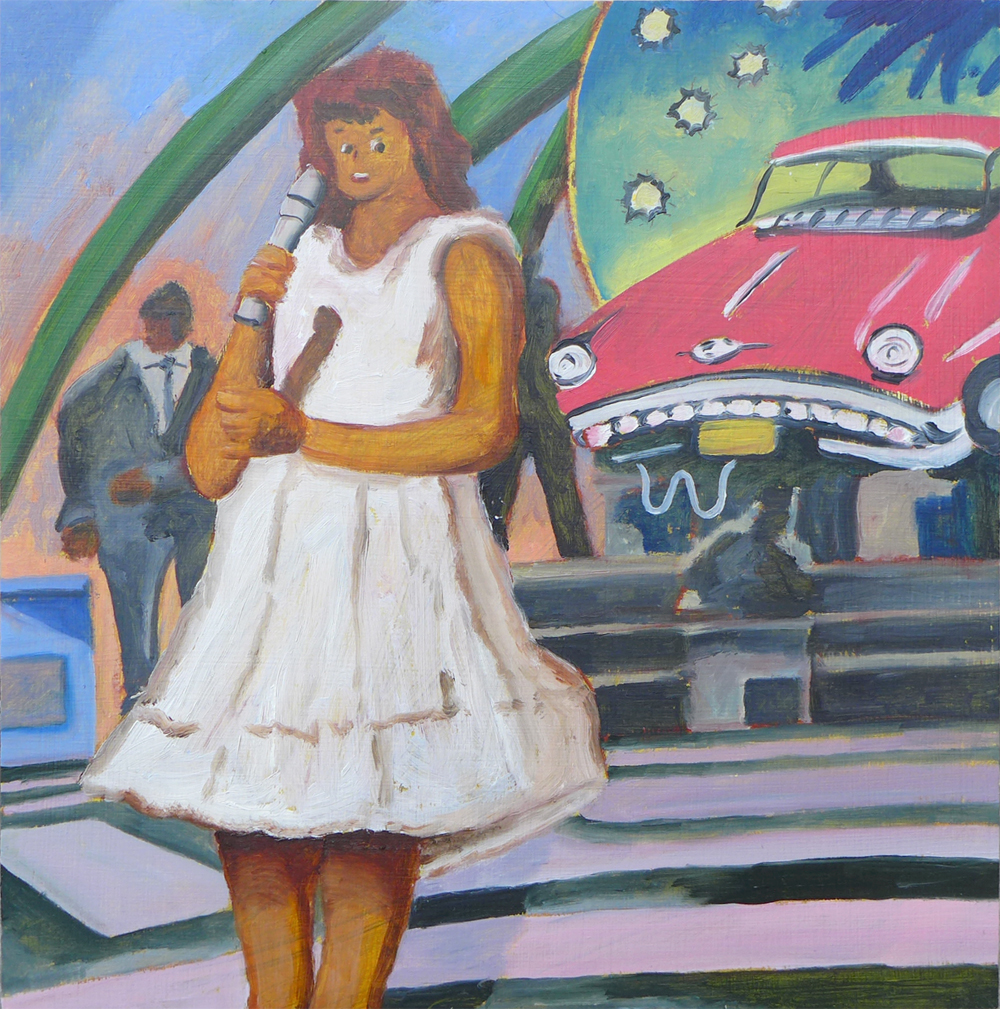
© Hiroya Kurata
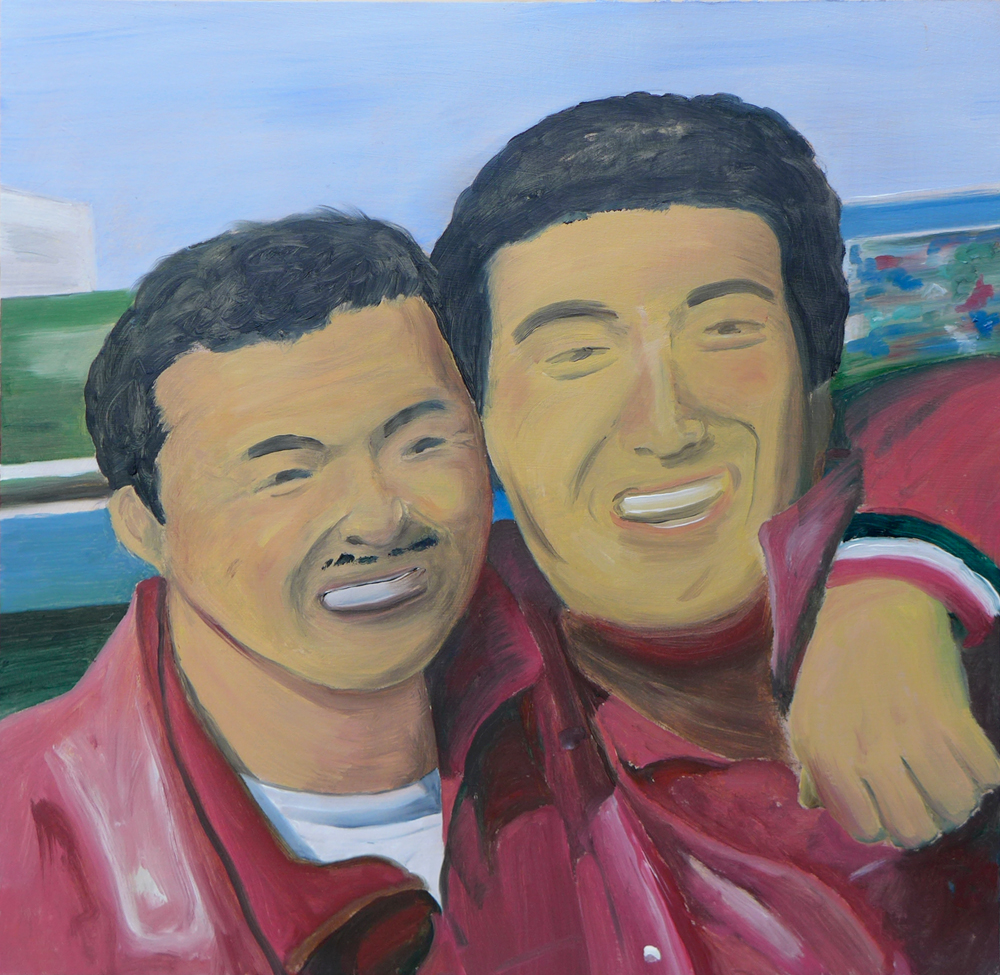
© Hiroya Kurata
TRENDING
-
A Rare Japanese Garden Hidden Within Honen-in Temple in Kyoto
Visible only twice a year, ‘Empty River’, designed by landscape architect Marc Peter Keane, evokes the carbon cycle.

-
Colour Photos of Yakuza Tattoos from the Meiji Period
19th-century photographs have captured the usually hidden tattoos that covered the bodies of the members of Japanese organised crime gangs.

-
Recipe for Ichiraku Ramen from ‘Naruto’ by Danielle Baghernejad
Taken from the popular manga with the character of the same name who loves ramen, this dish is named after the hero's favourite restaurant.

-
Modernology, Kon Wajiro's Science of Everyday Observation
Makeup, beard shape, organisation of cupboards and meeting places: all of these details decipher 1920s Tokyoites.

-
The Tradition of the Black Eggs of Mount Hakone
In the volcanic valley of Owakudani, curious looking black eggs with beneficial properties are cooked in the sulphurous waters.

